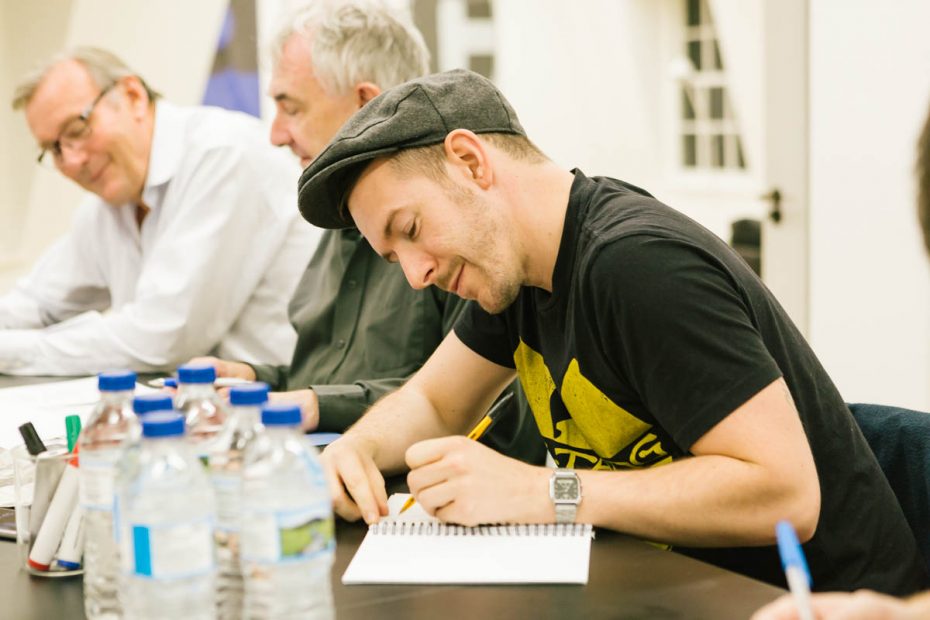Head of Writing Jon Barton discusses procrastination, perfectionism and high expectations. So if you have been pondering on that novel for a while now, it’s time to pick up a pen and start writing! Read on to discover how...
Question. What do we think about when we think about writing? If I asked you to imagine the perfect conditions, what might you say?
I ask students this question on our Creative Writing Beginners course. Sure enough, a shared idea starts to emerge that casts the writer as a tortured genius. But is there any truth to it?
Go with me on this. To talk about getting stuck is to put this cliché to bed. After all, by definition, a cliché must have some truth to it. Let’s assume that you, like many writers, require certain conditions. Ernest Hemingway burned the midnight oil, Dylan Thomas hit the bottle, Hunter S. Thompson… well, you get the idea.
The point is all writers have a process. Stephen King shuts the door. Roald Dahl worked in a shed at the end of the garden. Irvine Welsh writes to music. Sounds like writers giving themselves what they need, doesn’t it? No torture involved! So why does the cliché endure?
The reason is simple. It’s more interesting. Picture The Artist: alone in a room, cut off from the world, crafting each word. ‘Not for ambition… or the strut and trade of charms’ as Dylan Thomas eloquently put it. We seek conflict in the Greats like the Heroes in a novel. A classic Rags to Riches tale. If the cliché is true we’d never write well without turmoil. And we can never hope to meet expectations.
Pencils down. Shut the book. We’ll never be that good so why try at all.
You’re still here. Which means you’re not giving up that easily. Good news is the hard part’s over. Now consider expectation a moment…
Walk into any bookshop in London. What do you see? Shelves full of books? Costa winners and Man Bookers and Bestsellers? Tomes of every creed? Take one. Any book. Hold it in your hand. This is what we compare ourselves to. It’s in our nature – we all want to do well. Yet the book you hold was crafted; drafted; proofed; redrafted; edited; and proofed again. That work is ready. The difference between you and that author is actually very simple – that author wrote. And they kept writing. And when they felt ready they shared it. And now they’re sharing it with you. There’s no secret. It’s a process of discovery.
To start writing we must give ourselves what we need. To learn to do so is to write. One cannot exist without the other. But do yourself a solid. Put expectation to bed. Forget what enabled others, focus on what enables you. So ask yourself: what do you need to write well?
I’m up with the lark. Cup of coffee to hand, a tidy desk if I can help it. It could be a scene from a script or a thousand words of something longer. I work for about five hours – six on a good day. I can’t write in the afternoon. I can’t write to music (get you, Irvine) or on public transport - I’m jealous of writers that can. I can’t afford a shed. I’m a Londoner. But so what? It’s none of my business. If I compared myself to others I’d never write anything.
Give yourself what you need. Think about your process. You might be a night owl or even be a nighthawk, holed up in a bar until last orders or the Wi-Fi runs out. You may need a window, a closed door, a mood board, an Alexa or a Siri to dictate to. Whatever it is: it’s all to play for. Find the time and the space to write. There’s nothing more exciting than that.
Start. That’s my best advice. Find time and space, and simply begin. See what happens. It’s all to play for. Surely there’s nothing more exciting than that?
 Jon Barton heads up our Writing department. Want to find out more from Jon? Take one of his Creative Writing courses!
Jon Barton heads up our Writing department. Want to find out more from Jon? Take one of his Creative Writing courses!
City Academy runs writing classes across London. Whether you are just starting out or have written novels, scripts or blogs before, we have courses across all levels.







